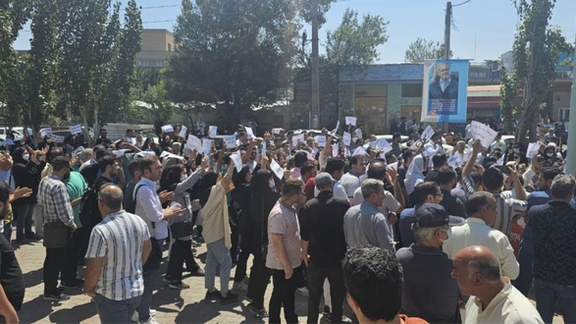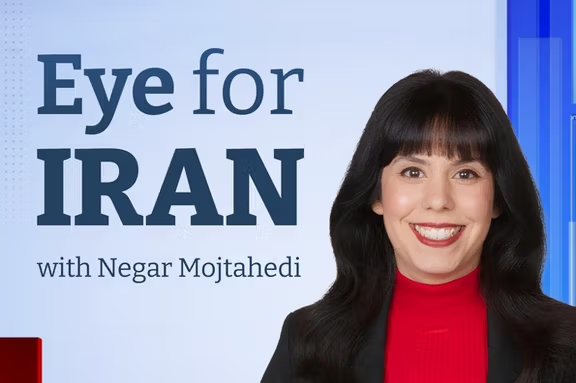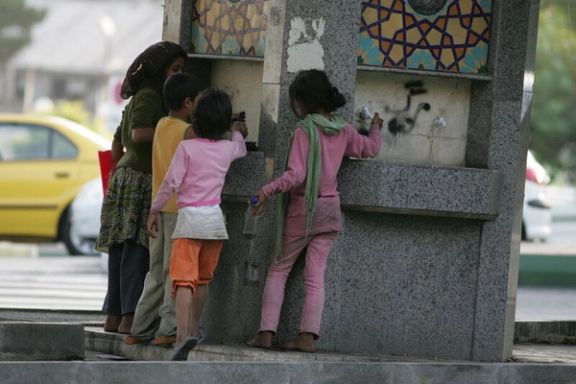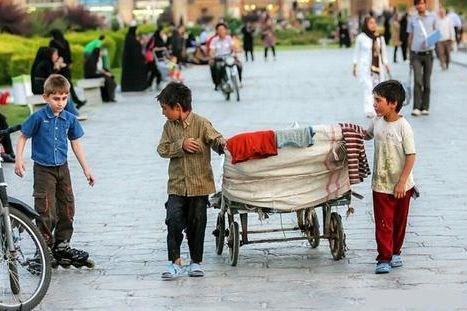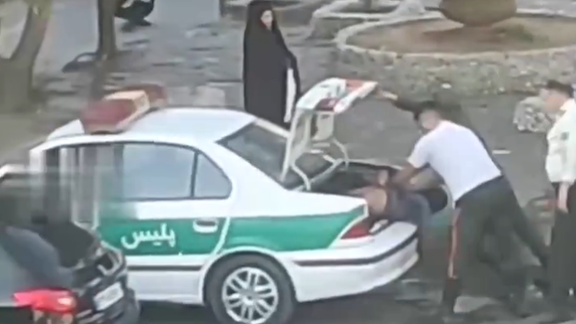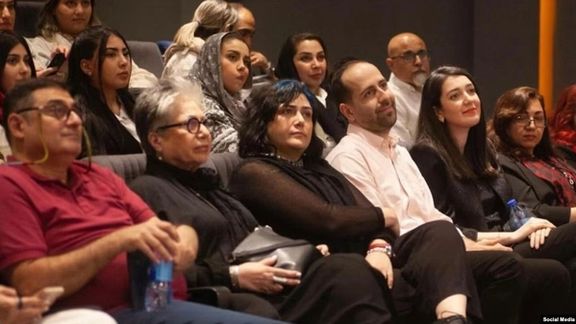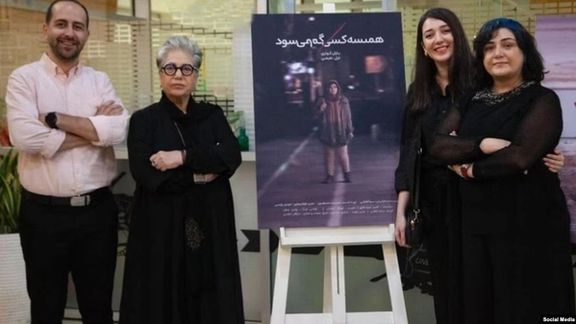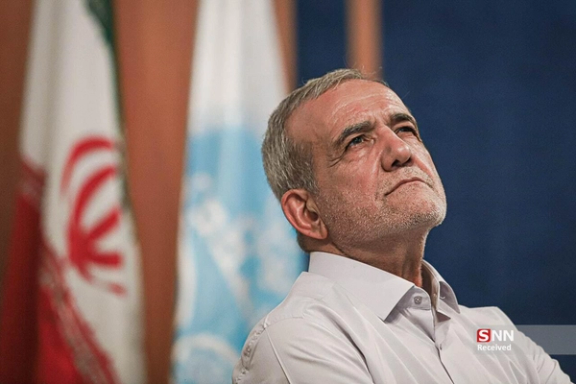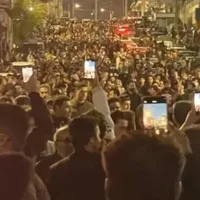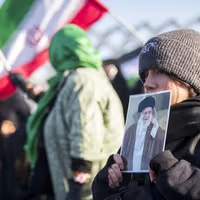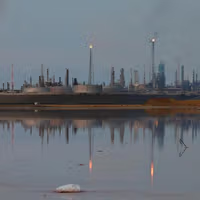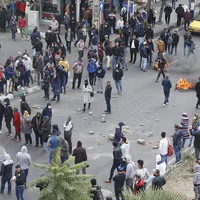In this week's episode of Eye for Iran, Greg Brew, a senior analyst on Iran and Energy with the Eurasia Group, speaks to the connection between the two conflicts spanning two continents yet intricately intertwined.
Iran, a country that has had a bitter past with Russia and even experienced occupation at the hands of its powerful neighbor, has involved itself in the Ukraine war by becoming a military enabler for Russia and providing diplomatic support.
With the Russian invasion of Ukraine in February 2022, the Kremlin saw Tehran's support as a necessity and the Islamic Republic saw long-term strategic payoffs.
With Russia's isolation from the West and the US and NATO's support for Ukraine, Iran seemed like the likely rogue, anti- US nation to turn to.
"Russia's war in Ukraine and Russia's increasing isolation from the international community, the weight of Western sanctions, US support for Ukraine, and Russia's need for weapons, increased arms for its war in Ukraine has offered Iran a way to increase its leverage, get a closer relationship with Moscow largely through by serving as Russia's sort of new source of armaments," said Brew.
"There of course have been multiple reports of Iran selling drones to Russia assisting Russia in establishing a drone factory. There have been recent reports of Iran potentially selling ballistic missiles to Russia, although these remain somewhat unconfirmed," he added.
How Ukraine-Russia is related to Israel-Iran
But what does this all have to do with the spiraling, unprecedented conflict being seen in the Mideast at present?
In 2022, Pentagon Press Secretary Air Force Brigadier General Pat Ryder said there were Iranian military personnel on the ground in Crimea assisting Russia.
On Monday Andriy Kostin, Ukraine's Prosecutor General, announced that a case has been opened against an IRGC brigadier general, Abbas Mousavi Sharifi Mollasaraei, on suspicion of aiding Russia in war and war crimes against Ukrainian. Iran's Foreign Ministry spokesperson dismissed the claims.
Moscow also receives hundreds of Iranian-made drones that has been used in its war against Ukraine and there are also reports that Iran is sending ballistic missiles to Russia as well.
Iran, which has a clear deficit in its air force and air defense systems is eyeing Russia’s S-400 advanced air defense system, which would offer an upgrade to the S-300 system Iran currently possesses. Iran also has Russian Sukhoi Su-35 fighter jets on its wish list. Its air force has been relying on aging American fighter jets bought before the 1979 Islamic Revolution.
There were also reports in August that Russia had transferred Iskander short-range ballistic missile systems and Murmansk-BN electronic warfare systems to Iran, but Iran International has not been able to verify that.
Nevertheless, it is evident that as Iran gains a stronger partnership with Russia and more procurement, the threat only increases to Israel and the United States interests in the Middle East.
Deterrence is part of the strategy, said Brew, who believes Iran's budding relationship with Russia would help it to have more leverage against its foe, Israel.
"From the point of view of Iran, this does affect its confrontation with Israel and the ongoing Middle East crisis that began on October 7th with the Hamas attack against Israel. Iran is conscious that it faces a conventional mismatch, if you like, in terms of military capabilities. Israel and the United States have much more powerful conventional militaries than Iran, so Iran is always looking for sources of additional deterrence, additional support. And one potential source of support is Russia, " said Brew.
"That's how these two conflicts are connected. That's how they form part of Iran's broader foreign policy."
Iran's role in Hamas' Oct 7 attack on Israel in some ways provided a distraction of the atrocities being committed by Russia in Ukraine.
The Islamic Republic's unprecedented and first-ever direct attack on Israel in April involved hundreds of ballistic missiles, cruise missiles and about 170 drones, lasting for about 5 hours according to Israel's Defense Forces (IDF).
Ukranian President Volodymyr Zelensky condemned Iran for that, stating that his country is familiar with "the horror of similar attacks." Ukrainians have suffered from Iran-made Shahed-136 drones, the same model reportedly used on Israel that night.
Ukraine’s sudden counterattack in Russia’s Kursk region has increased pressure on the Kremlin and President Vladimir Putin, but Russia is still making gains in Ukraine, and there appears to be no end to the war much like there appears to be no end to the conflict in the Middle East and the war against Hamas in Gaza.
While the Iran-Russia partnership is not a full alliance, it hangs on a balance of fragility, with neither of their interests always aligning and a troubled history between the two nations.
Just what will unfold in 2025 will in large part depend on what happens in the war in Ukraine and the Mideast, said Brew.
To find out more, and to see how the Houthis and Gulf States fit into the equation, watch the full episode of Eye for Iran featuring Greg Brew on YouTube, or you can listen on Spotify, Apple, Castbox or Amazon.
